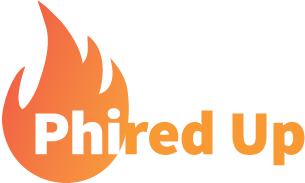Be More Moose, Less Hero
by Nick Gilly and Vince Fabra
Social Excellence calls for you to be less of a hero, and more of a sidekick. In recruitment, a moose can attract heroes. Read on to figure out what all this means…
 In high school English most of us learned about the archetypal hero and the “hero’s journey.” The hero hears his calling, his inner impulse which drives him into the unknown. Along his journey he encounters “demons” and other obstacles that try to divert the hero from his journey, but with the aid of a helper or mentor he overcomes those obstacles and succeeds in his quest.
In high school English most of us learned about the archetypal hero and the “hero’s journey.” The hero hears his calling, his inner impulse which drives him into the unknown. Along his journey he encounters “demons” and other obstacles that try to divert the hero from his journey, but with the aid of a helper or mentor he overcomes those obstacles and succeeds in his quest.
Let’s be honest: we all want to be a hero. From early childhood playing cops and robbers we frame our lives from the point of view that we are the hero, and life is our hero’s journey. When we arrive on a college campus, we set out on our quest to find ourselves. That quest has taken us into our fraternities and sororities, and included the typical cast of helpers, demons, and obstacles along the way. We surmount odds with the ultimate goal of accomplishing great things and leaving our own legacy.
If you’re the hero, what does that make those around you? What does that make each potential new member you meet? How are you framing your conversation with him? Is he a helper being recruited into your great organization to help you on your journey? Think about this: the wo/man across the table from you is undergoing their own hero’s journey. To them, you are either a helper, a demon, or an obstacle. What will it be?
Next time you have the opportunity to have a conversation with a potential member, what if you made them the hero? What if your questions, your conversation, and your actions framed yourself as the helper instead, aiding and mentoring him on their own hero’s journey? What if instead of telling them about what your chapter does, you asked them what they would do with the chapter? What would people learn about that person through the chapter’s actions? How would that excite him/her?
Everyone wants to be the hero, so why not give the people you interact with the chance to be? How would that change the conversation?
If we strive to build successful chapters, what gives us a better chance of success than constantly recruiting heroes?
Batman had Robin. Maverick had Goose. Robin Hood had Little John. Heroes and their sidekicks pervade through stories. It is hard to find a Disney movie that doesn’t show us a hero who could not have succeeded in his quest without the aid of a helper. This is not just a fantasy construct, however; the relationship between heroes and helpers is all around us in our own lives.
 Sports fans the world over recognize Emmitt Smith as a football hero. As the NFL’s all-time leader in rushing (18,000+ yards) and touchdowns (164 TD’s), I’d argue that even non sports fans recognize his name.
Sports fans the world over recognize Emmitt Smith as a football hero. As the NFL’s all-time leader in rushing (18,000+ yards) and touchdowns (164 TD’s), I’d argue that even non sports fans recognize his name.
How about this name: Daryl Johnston? For most, “Daryl Johnston” is a name that does not ring a bell. Daryl “Moose” Johnston is a former NFL player, a Super Bowl Champ, and now a sports broadcaster. To Emmitt Smith, however, Daryl “Moose” Johnston is the most important helper of his career. See, Moose played fullback, while Emmitt Smith played running back. The primary objective of a fullback is to lead the way, clear the path and protect the running back. For 10 seasons, Moose sacrificed the ball carries, the touchdowns, the glory, and his body to ensure that Smith would be successful.
Take a look at this video, as Smith thanks Moose for being a teammate, a friend and a helper.
Then I want you to dry your eyes (if you’re anything like us) and then think of the Moose in your life. How would your life be different without their help? Who are the people that need you to be their Moose? How can we put our own hero’s journey to the side and be the helper?
How can you be the Moose?
